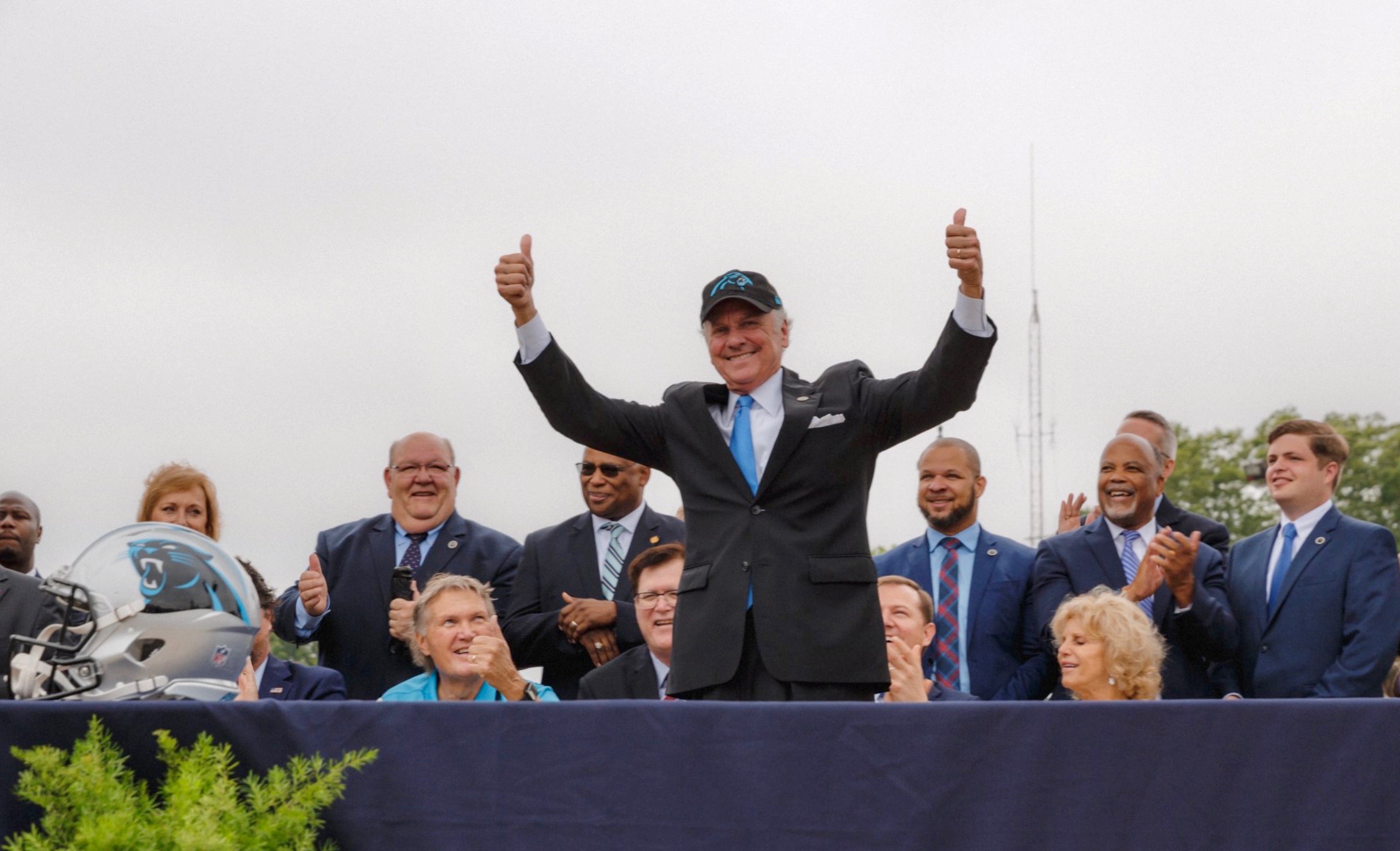South Carolina governor Henry McMaster hasn’t had a lot to brag about when it comes to “economic development” during his four years in office. Not that we believe government-driven “jobs announcements” are a good thing, mind you … more often than not, they represent yet another form of fleecing.
Basically, government “jobs deals” invariably involve taking money out of the pockets of one set of businesses (and out of the pockets of taxpayers) to subsidize another business … with dubious returns.
This news outlet has previously pulled back the curtain on the machinations of so-called “economic developers” in South Carolina. And more specifically, we have pulled back the curtain on McMaster’s lone major crony capitalist victory – a handout to liberal billionaire David Tepper, owner of the National Football League (NFL)’s Carolina Panthers.
This news outlet opposed this handout from the very beginning – even before it was revealed that state leaders were lying through their teeth about its potential economic benefits.
“This is a bad deal. Period,” we wrote in March of 2019. “South Carolina should pass on the Panthers … and tell Tepper that while he is welcome to locate (his offices) in the Palmetto State, he is not going to get paid to bring them here.”
RELATED || Cronyism Run Amok
Why did we oppose the Panthers’ deal? Because corporate welfare for professional sports franchises is among the most insidious forms of crony capitalism. A 2015 report from the Mercatus Center at George Washington University highlighted extensive previous research on this subject, concluding that “despite the many millions of dollars spent on professional sports, little or none of that money makes its way back to the taxpayers.”
In addition to the direct payouts to the Panthers, we further believe the infrastructure funding associated with this project ought to be devoted to far more pressing priorities in other parts of the state.
Also, we have real concerns that the tax deals being struck by local governments are being driven by political connections as opposed to legitimate needs – including troubling proximity issues involving U.S. congressman Ralph Norman.
Readers will recall Norman led the fight against taxpayer-subsidized deals for crony capitalist giants Amazon and Boeing during his tenure in the S.C. House of Representatives – but he has since flip-flopped and become one of the top cheerleaders for the Panthers’ deal.
Why? Could it be the “Republican” congressman owns property in the immediate vicinity of the Panthers’ new facilities? And stands to benefit from a proposed tax increment financing (TIF) deal associated with the development?
Sheesh …
If there is one thing we cannot stand it is hypocrisy … but it’s even worse when that hypocrisy based on self-interest.
In addition to state incentives eclipsing $160 million, the city of Rock Hill has approved a massive $225 million borrowing agreement for the Panthers, one that will plunge local taxpayers hundreds of millions of dollars in debt (including anywhere between $135-215 million in interest costs).
It is a massive investment – but who will benefit from it?
We know the Spartanburg, South Carolina
And when will we see the final terms of the agreement?
(Click to view)
(Via: Rock Hill, S.C.)
Last week, reporter Alaina Getzenberg of The Charlotte Observer ran a lengthy story on the status of the Panthers’ deal in which she noted the development was “taking longer than originally planned.”
Originally slated for completion in August of 2022, the first phase of the team’s new complex is now unlikely to be finished until May of 2023 at the earliest, Getzenberg reported.
“But even finishing by then will be a tight fit, and the effects of this delay and any that may follow will ripple beyond the football team,” she noted.
While Getzenberg’s story repeatedly cited the coronavirus pandemic as being the reason for the delays, she acknowledge Covid-19 was “not the only reason.”
Specifically, she referred to “a hold up in signing the land development agreement” that apparently delayed an official groundbreaking for the site earlier this year – and is continuing to create problems in negotiations with the franchise.
We reached out to a lawmaker familiar with the agreement this week and asked them what was behind the delay.
“You mean other than the city not being able to afford it?” the lawmaker respond.
Wait … what?
According to the lawmaker, the city is “over-leveraged” – pointing us to a line in Getzenberg’s story about the ongoing delays in the project creating “long-term ramifications for the city of Rock Hill” including a “year or more of lost tax revenue for the city from businesses that may choose to relocate” to the new development.
Two legislative supporters of the Panthers’ agreement downplayed these financial concerns. One likened the situation to a family experiencing a delay in pouring the foundation for a new home. Another assured us the finance agreement for the deal was “nearly complete” – and pointed our attention to the land clearing and grading work that was already taking place at the development site.
Hmmm …
Our view? We suspect this deal – like so many other crony capitalist handouts – is “too big to fail.” Meaning city, county and state leaders (and Norman) will find a way to ram it through even if prevailing economic conditions have made its already debunked assumptions even less realistic than they were before.
But here is the real point: Whether crony capitalism pays off or not, there is always a cost to taxpayers and businesses not in on the deal – one that politicians don’t like to talk about when they are posing for pictures at ribbon-cutting ceremonies.
-FITSNews
***
WANNA SOUND OFF?
Got something you’d like to say in response to one of our articles? Or an issue you’d like to address proactively? We have an open microphone policy! Submit your letter to the editor (or guest column) via email HERE. Got a tip for a story? CLICK HERE. Got a technical question or a glitch to report? CLICK HERE.



